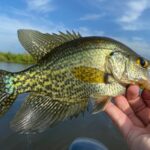Largemouth Bass are the most popular gamefish in North America, and with that popularity comes a bit of controversy.
Before catching giant bass was the cool thing to do, before the major tournaments and organizations existed…did people eat largemouth bass? And more importantly, do people still eat them today?
In this article, I’m going to dive into this sensitive subject with my personal take having over 25 years of bass fishing experience.
This page contains affiliate links. As an Amazon Associate, I earn from qualifying purchases.
Table of Contents
Are largemouth bass good to eat?
The short answer: yes! Largemouth bass are very good eat. But like all species of fish, there is a method and preparation process that can ensure your eating the best quality bass.
Are there fish that taste better? Well, there are certainly other freshwater fish that are more popular when it comes to table fair. Yellow Perch, Black Crappie and Walleye are all top contenders.
But does that mean bass are not good to eat? Of course not! If the right bass is kept, if its cleaned properly and cooked to your liking, then bass can be a great meal. And they are plentiful.
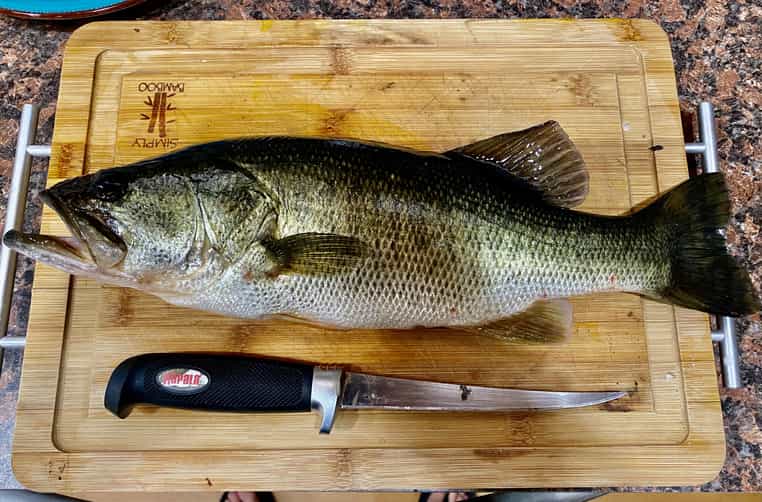
What does a largemouth bass taste like?
Largemouth bass has a mild flavor and medium fillet texture. Proponents of eating largemouth bass describe the flavor as earthy, nutty but delicate. Naysayers of eating largemouth bass describe the flavor as muddy or fishy.
The truth is largemouth bass are a pillar species, so they often taste like what they eat and the water that they live in. If you catch bass from a clean spring-fed lake or river, the meat and flavor will reflect those clean flavors.
If you catch bass from a backwoods swamp of dark tannic water, with hydrilla and vegetation it will reflect those stronger and darker flavors.
But let’s not forget that taste is subjective. After all, some people eat this and love it:
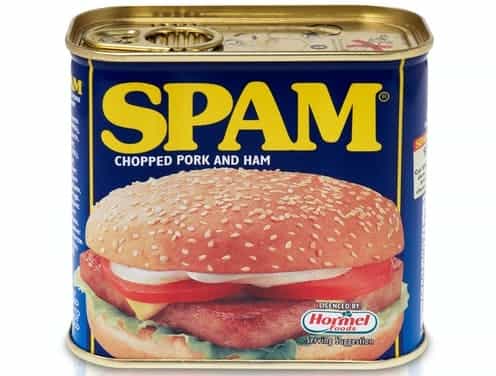
Is it better to release largemouth bass, or to eat them?
Due to the popularity and emphasis on trophy-sized bass, many anglers feel remorse or pressure if they keep a bass. So it is better to release largemouth bass or is it okay to keep some to eat?
It is perfectly fine to keep a few bass for the fryer, as long as it is within the slot and size limits in your area and it’s done in moderation.
Does that mean you should keep a cooler full of 10-pound bass? Of course not. But is it okay to keep a few smaller fish? Absolutely!
In fact, fisheries biologists and wildlife managers all over the country agree, that keeping bass and abiding by recreational harvest limits can actually help local fish populations.
Studies indicate that long-term catch-and-release fishing can indeed impact a fishery in a negative manner. Smaller, more aggressive fish deplete the food resources of a take faster and more efficiently than larger fish.
-Bassresource.com; Are We Overdoing Catch And Release?
In other words, the ‘catch and release’ mentality that is prevalent in the bass fishing community may be doing more harm than good. By not keeping smaller, more aggressive fish that means food resources are limited and bigger fish may be impacted.
Consider this: Recreational harvest limits are created by wildlife managers to ensure a sustainable population of fish. Where I’m from, in Florida the limit is 5 bass per person. But do I keep 5 bass every time I go fishing? Of course not.
But I certainly don’t have a problem keeping a few small bass if I would like some fresh fish.
Also, as much as bass fishermen hate to admit it sometimes bass can swallow the hook, or get hooked in the gills. It happens, and it’s often fatal for the fish.
Don’t throw back a bass that is already dead- keep it and put it to good use! Fry it up and enjoy a nice meal.
NOTE: Always check the fishing regulations in your area. Largemouth Bass often have a ‘slot’ limit, meaning they must fall between a certain minimum and maximum size.
Here in Florida, You are allowed 5 bass per person, but only one may exceed 16 inches in length. And that’s fine by me, because the best eating size is in the 12″-15″ size range.
I use the aluminum measuring stick made by Frabill. Perfect for the boat, kayak, or even if I’m bank fishing. It’s durable and waterproof, and no more hassling with flimsy tape rulers.
See My Amazon Picks: Best Bass Lures & TackleWhat size bass should you eat?
Bass that are between 1-2 pounds are the best size to keep for the dinner table. This is big enough to get a nice fillet but small enough before the fish becomes a ‘breeder’ size and takes on strong flavors.
I’ll also add that you should be cognizant of where you are catching you bass. Some bodies of water (lakes, rivers, ponds) are cleaner and healthier than others. Bass that are caught in clean healthy ecosystems generally taste much better.
For example, don’t keep bass out of residential ponds that may have fertilizer or pesticide runoff.
How to cook largemouth bass
The most common way to cook largemouth bass is pan-fried or air-fried. Baking is common also as well as sautee or in a gumbo.
Why are largemouth bass so popular?
Because they are awesome, duh! Kidding. Here are 6 reasons why bass fishing is so popular:
1.) They are an incredible fish, capable of growing very large quickly and possess all the qualities anglers endear: Explosive bites, acrobatic jumps, hard strikes, and exciting runs.
2.) They are plentiful. Largemouth Bass and its subspecies are found in every single state except Alaska.
See also: Are There Panfish In Alaska?
3.) Largemouth Bass can be caught on a wide variety of methods and techniques, some of which are so much dang fun!
Bass can be caught with topwater baits, deep diving lures, on worms, in the weeds, out deep. They can be caught on ultralight tackle, baitcasters, spinning reels, spin cast reels and while fly fishing.
See also: Different Types of Fishing Reels…Pros & Cons Explained!
You can catch them on live bait, dead bait, cut bait, and fun lures like frogs, lizards, and even snakes!

4.) Bass Fishing is big business. It’s estimated that anglers contribute more than 115 billion dollars a year annually in the United States from recreational fishing.
5.) Bass fishing has developed a cult-like following. The species, the tackle, the tactics, it’s all an entire culture. The fascination and popularity of largemouth bass fishing has exploded in the past 30 years and isn’t slowing down.
6.) The largemouth Bass is a unique American icon. It’s a highly adaptable species found in lakes, ponds, rivers, canals, reservoirs, ditches and everywhere in between!
Why do some people get so angry if you keep bass?
I think some people get angry when they see a bass being kept or killed for food because they care about bass fishing. It usually comes from a good place: They love to catch bass and want to catch more and bigger fish.
But, from a biological perspective or educational perspective, we know that keeping a few smaller-sized bass does not impact fish populations. In fact, by not doing so you may be doing more harm than good.
Anglers in general have really changed over the past generation. My grandfather for example would not think twice about keeping every bass he caught. Big, small…doesn’t matter. They are food- plain and simple.
But nowadays anglers have accepted catch and release as standard practice. They understand how to handle a fish with care, and respect the sport of bass fishing.
But let’s not forget about our roots. Let’s not forget that people have been eating largemouth bass for generations. Let’s not forget that just because bass are a pillar species and catch and release is common, that doesn’t mean the old-timer cant keep a few for supper.
Conclusion
So the next time you’re out on the lake or river and catching some bass, consider keeping a few small ones for a meal. You may end up loving the taste, and now you have a new fish to add to your family fish fry.
And if someone asks you “Are Largemouth Bass Good to Eat?” You can answer from your own personal experience. Good luck!
P.S. If you’re looking for the ultimate fish recipe cookbook, I highly recommend ‘Hook, Line, and Supper‘ by Hank Shaw.
It’s full of mouth-watering recipes every fisherman will love (and yes, it includes bass recipes!)
You May Also Like: Are Freshwater Drum Good To Eat? You May Be Surprised!
If you haven’t guessed yet, I love fishing and everything about it!
To learn more about why I started Panfish Nation, visit the About page and follow along on Social Media:
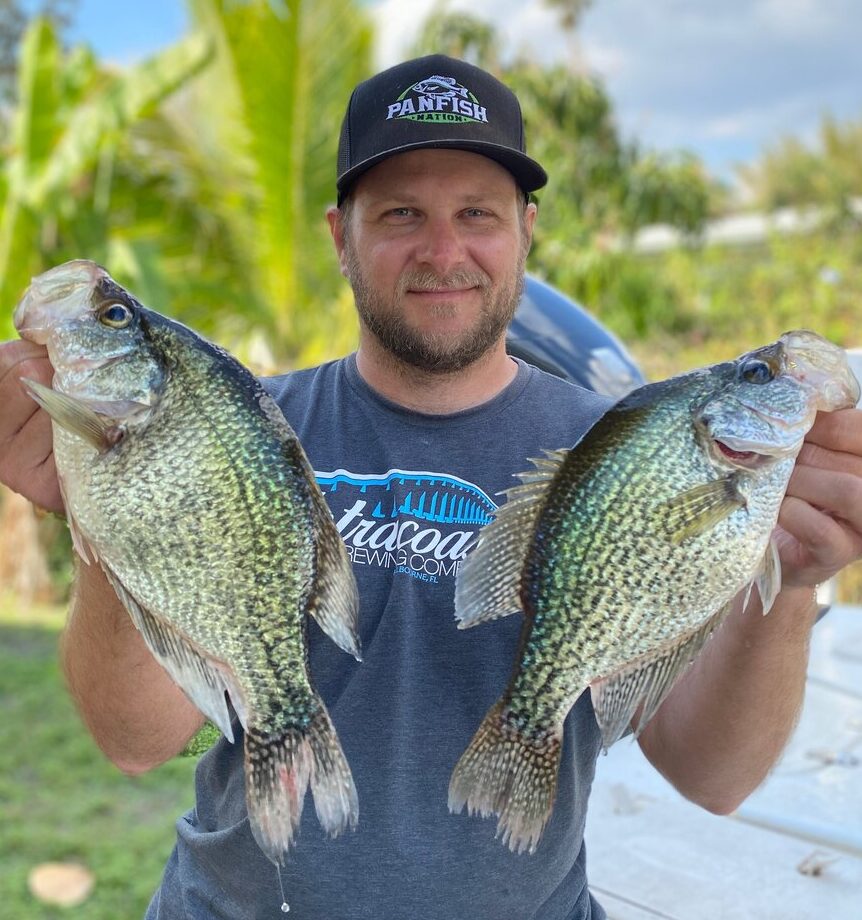
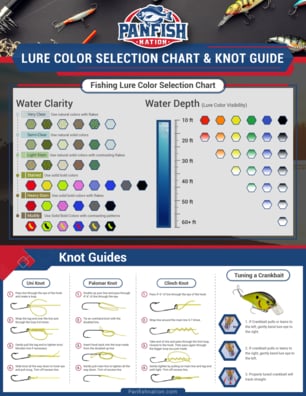
Download a copy of my FREE Lure Color Selection Chart & Knot Guide!
Stay up to date with fishing reports, tackle reviews, industry news, and much more! We respect your privacy, unsubscribe at any time.
Like this post? Share it on Pinterest.
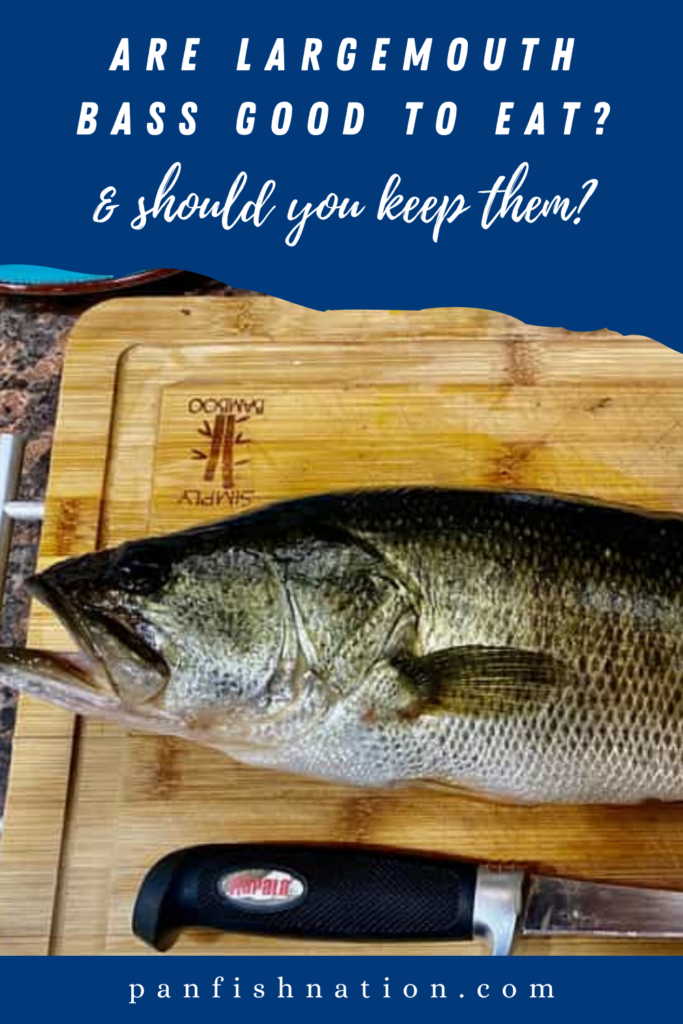
Additional Reading
- Crazy Facts About the World Record Crappie
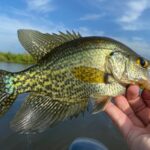
- What Size Hooks for Smallmouth Bass? Quick Guide
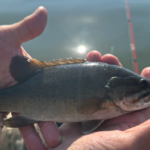
- Large and in Charge-Mouth: 10 of the Best Bass Lures of All Time (And Where to Buy Them)
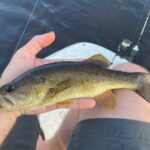
- Emperor of the Sun(fish): What You Need to Know About the World Record Bluegill
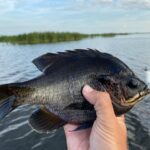
- The Seven Best Lures for Fall Bass Fishing
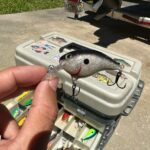
- Which Fishing Line is Best for Bass Fishing With A Spinning Reel?

- What Size Hooks for Panfish?
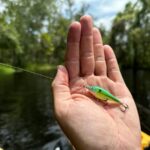
- Coppernose Bluegills: How They’re Different from Common Bluegill
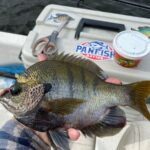
- Best Crappie Lakes In North Carolina
